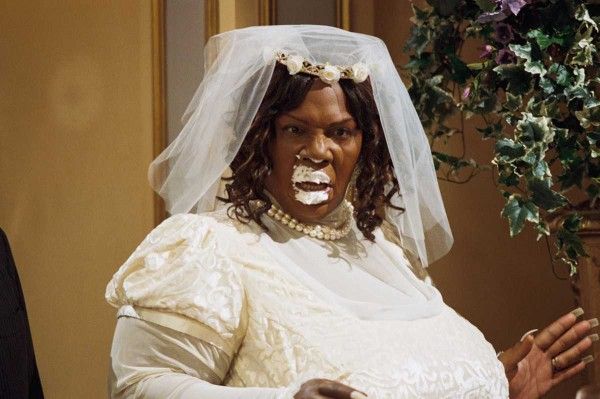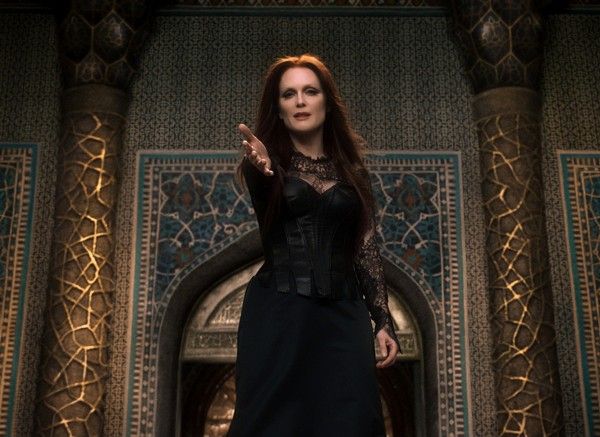In 2007, Eddie Murphy was going to win the Oscar. It had been decided—preordained even—that Murphy’s Best Supporting Actor win for his work in the musical Dreamgirls was a foregone conclusion. But when it came time to read the envelope for his category, Alan Arkin took the stage for Little Miss Sunshine, not Murphy. How could this have happened? What went wrong? Something must be to blame, everyone said, and then the collective finger pointed directly to Norbit, a critically derided “Eddie Murphy plays eight different characters in makeup” comedy that was released in theaters two weeks before the Oscar ceremony. So, in essence, Murphy lost the Oscar because another one of his movies, a bad movie in which he gave multiple silly and over-the-top performances, altered the Academy’s opinion of his talent. Or so the story goes…
Did Norbit really cost Murphy the Oscar and why are we talking about this now? Well, it just so happens that two of this year’s frontrunners in the Best Actor and Best Actress categories appear in new films this weekend, new films that aren’t exactly receiving great notices. Eddie Redmayne, who gives a fantastic performance in The Theory of Everything as Stephen Hawking, delivers a wild, very left-of-center performance as the primary villain in the space opera Jupiter Ascending. And Julianne Moore, who seems primed to finally win an Oscar for her devastating performance as a woman who has early on-set Alzheimer’s in the drama Still Alice, plays a witch with a metal spike-laden dress in the maligned fantasy Seventh Son.
If one believes that Norbit directly affected Murphy’s chances of winning the Best Supporting Actor Oscar in 2007, then one might think that Redmayne and Moore are in danger. Neither Jupiter Ascending nor Seventh Son is getting great reviews, and the two actors’ performances are being singled out as odd and a little nutty. But I’d argue that Norbit had little-to-nothing to do with Murphy’s Oscar loss. First of all, Arkin had been rising as a dark horse in the lead-up to the Oscars, culminating in a telling BAFTA win. Second, Norbit was only released two weeks before the awards ceremony. How many voting members do we think actually saw Norbit with their own two eyes before submitting their ballots?
As that relates to this year’s race, how many Academy members do you think are going out of their way to see either Jupiter Ascending or Seventh Son before voting closes on February 17th? Not very many, I’d reckon.
And more importantly, one performance in one movie really has nothing to do with a performance by the same actor in another movie. Redmayne is playing to the rafters in Jupiter Ascending because that’s the level that he and The Wachowkis decided was appropriate for his character (whether that level is consistent with the other characters in the film is a different story). And Redmayne’s performance in The Theory of Everything—in which he was sometimes playing three or four different stages of physical deterioration in the same day—was guided by director James Marsh. A filmmaker provides the constraints and context for an actor when he or she is feeling out the arc of a particular scene, and so the level of that performance is (or should be) in keeping with what the director wants out of that scene. A director’s job is to direct, after all.
Will Redmayne and Moore both be winning Oscars at the end of this month? They’re the presumed frontrunners in their respective categories at this point in time, but nothing is certain. However, if they somehow lose out (Redmayne’s status is considerably more shaky than Moore’s), I really don’t think it’ll have anything to do with Jupiter Ascending or Seventh Son. Lets put those knives away and, hopefully, put this “Norbit effect” notion to bed once and for all.




